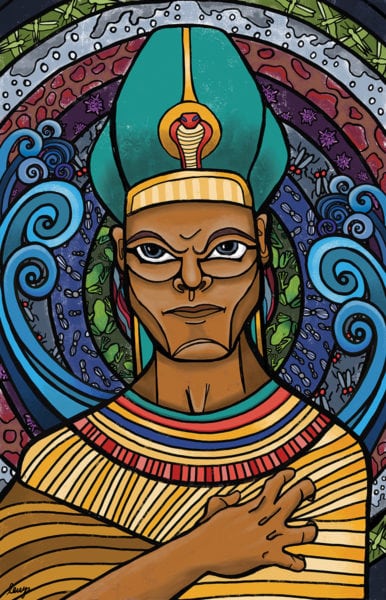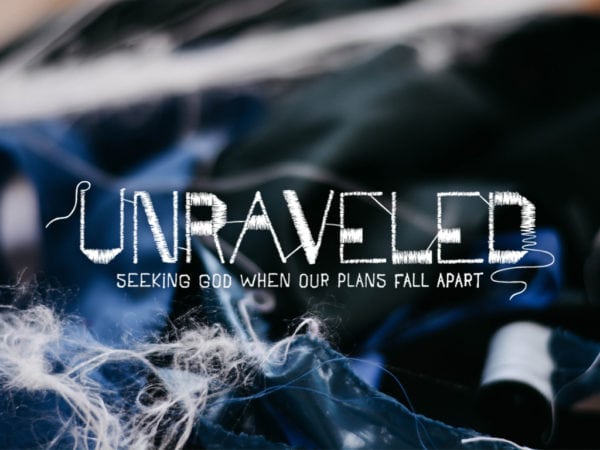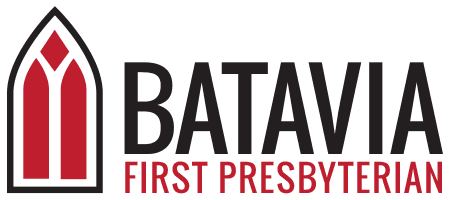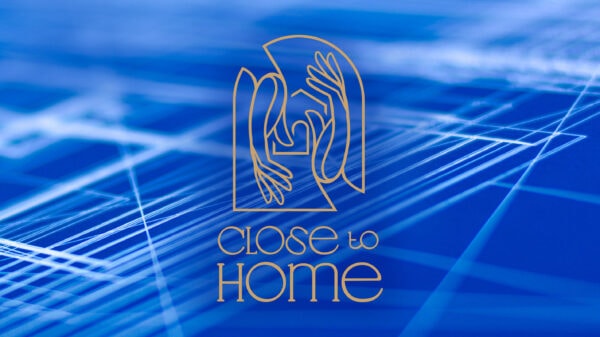
“Anti-Creation Narrative” by Lauren Wright Pittman |
A Sanctified Art LLC | sanctifiedart.org
Weekly Bible Devotional
“When Humans Unravel God’s Plans for Justice”
September 6, 2020
In thinking about how humans unravel God’s plans for justice, I pondered how we are often so surprised when someone who seems to be a decent person ends up being publicly exposed or caught by the authorities for hurting or cheating others. The same goes for rulers and leaders who try to do the right thing for their people, but who end up abusing power. The pattern gets repeated in history so many times that we become cynical and suspicious of each other and of our own leaders. Why does God’s vision for justice seem to be so hard for humans to live by? There are certainly enough resources in our world for all of us to have enough. God created a world of abundance. There is also enough creativity among humans to find new solutions for our challenges. What seem to get in our way is the hardening of our hearts to suffering. In our Bible story for this week, we hear about someone who unraveled God’s plans for justice because of the hardness of his heart.
I pray that the reflections from “A Sanctified Art” will help you reflect on God’s invitation for us to reclaim God’s vision for justice in the world.
Scripture for This Week: Exodus 7:8-23
8 The Lord said to Moses and Aaron, 9 “When Pharaoh says to you, ‘Perform a wonder,’ then you shall say to Aaron, ‘Take your staff and throw it down before Pharaoh, and it will become a snake.’” 10 So Moses and Aaron went to Pharaoh and did as the Lord had commanded; Aaron threw down his staff before Pharaoh and his officials, and it became a snake. 11 Then Pharaoh summoned the wise men and the sorcerers; and they also, the magicians of Egypt, did the same by their secret arts. 12 Each one threw down his staff, and they became snakes; but Aaron’s staff swallowed up theirs. 13 Still Pharaoh’s heart was hardened, and he would not listen to them, as the Lord had said.
14 Then the Lord said to Moses, “Pharaoh’s heart is hardened; he refuses to let the people go. 15 Go to Pharaoh in the morning, as he is going out to the water; stand by at the river bank to meet him, and take in your hand the staff that was turned into a snake. 16 Say to him, ‘The Lord, the God of the Hebrews, sent me to you to say, “Let my people go, so that they may worship me in the wilderness.” But until now you have not listened. 17 Thus says the Lord, “By this you shall know that I am the Lord.” See, with the staff that is in my hand I will strike the water that is in the Nile, and it shall be turned to blood. 18 The fish in the river shall die, the river itself shall stink, and the Egyptians shall be unable to drink water from the Nile.’” 19 The Lord said to Moses, “Say to Aaron, ‘Take your staff and stretch out your hand over the waters of Egypt—over its rivers, its canals, and its ponds, and all its pools of water—so that they may become blood; and there shall be blood throughout the whole land of Egypt, even in vessels of wood and in vessels of stone.’”
20 Moses and Aaron did just as the Lord commanded. In the sight of Pharaoh and of his officials he lifted up the staff and struck the water in the river, and all the water in the river was turned into blood, 21 and the fish in the river died. The river stank so that the Egyptians could not drink its water, and there was blood throughout the whole land of Egypt. 22 But the magicians of Egypt did the same by their secret arts; so Pharaoh’s heart remained hardened, and he would not listen to them, as the Lord had said. 23 Pharaoh turned and went into his house, and he did not take even this to heart.
Theme Connections:
Moses follows God’s plan—stand up for justice for the Israelites. Don’t give up the fight. Demand what is right. However, Pharaoh has another plan—keep the Israelites as slaves. How do we press onward when we receive repeated nos? What do we do when broken systems—created by human sin—unravel God’s plans for liberation and justice? How can we counter the myth of scarcity by living a liturgy of abundance?
What Has Unraveled and/or Is Unraveling?
• Moses’ expectations for how God’s plan will unfold.
• Ultimately, Pharaoh’s grip on control and power unravels.
• The slavery and oppression of the Israelites unravels into liberation.
Guiding Questions:
• God sees the oppression of the Israelites and calls Moses (hiding out in the desert) to facilitate their liberation (Ex. 3). Moses follows God’s plan (Ex. 5:1-2), yet faces repeated nos. What do you imagine are Moses’ expectations and fears throughout this process? How does he push through?
• The enslavement of the Israelites (Ex. 1:8-14) is impacted by the famine in Gen. 47 when a previous King of Egypt monopolizes its resources (Gen. 47). To what, exactly, is Pharaoh’s heart hardened? Why is he driven by power and control?
• Walter Brueggemann writes, “Wouldn’t it be wonderful if liberal and conservative church people, who love to quarrel with each other, came to a common realization that the real issue confronting us is whether the news of God’s abundance can be trusted in the face of the story of scarcity?” How does this quote, and the myth of scarcity, inform your reading of this text? How do you see the myth of scarcity impacting your life and the life of your church?
Quote for Inspiration:
“The exodus story points to the fact that God chose to free a people from circumstances that were contrary to whom God created them to be. God’s choice was motivated by the very freedom that is God. God chose the Israelites because they were a people in bondage. The Israelites’ particular historical circumstances serve as the historical context through which God reveals a universal concern for all people. The context itself is revelatory. For the context of God’s revelation is consistent with the very nature of God. In this instance, it reaffirms the very freedom of God. . . What the enslaved understood and testified to in song is that God’s preferential option in the exodus story is for freedom. This is the way that we are to understand the centrality of the exodus story in black faith. It confirms that God’s intention is for all people, including black people, to be free to live into the goodness of their very creation. It is only in freedom that people are able to reflect the very image of a God who is free from all human forms of bondage.” —Kelly Brown Douglas. Stand Your Ground: Black Bodies and the Justice of God. Maryknoll, New York: Orbis Books, 2015. 158-9.
From the artist // Lauren Wright Pittman:
As I sketched this image of Pharaoh, I realized how cartoonish and irrelevant this character had become in my mind. What would Pharaoh look like today? I sat with this question as a creeping sense of irony came over my body. I would argue, to my surprise, that a modern Pharaoh might look a bit like the reflection in my mirror, and maybe in yours. This story of Pharaoh’s hardening heart leads to a kind of anti-creation narrative—one where the world is coming undone and actively being destroyed. Sound familiar? As a society, we are actively undoing God’s creation through our consumption while clinging to ease, convenience, and our power over our environment. We harden our hearts to the ways our actions cause harm. We value our comfort over the health of our coastlines while the first climate refugees flee their homes due to rising tides and sinking land. As water becomes scarce, violence will increase. Many will have to fight for their basic needs. I believe Pharaoh’s hardening heart is prophetic. This narrative reveals to us how a person’s clinging to power can literally unravel creation. We often undo the threads of creation, while God entreats us to become co-creators. We have seam rippers in our hands when God wants us to have needle and thread. There is a difficult hope in the narrative, however. Our own unraveling of God’s dream for creation is not strong enough to thwart God’s plan. Ultimately the Israelites find liberation. In this image, the waters of the parted Red Sea frame the chaos of the plagues. We will succeed, with God’s help, in healing the earth. We just need to allow God to soften our hearts, to take initiative in changing our perspective, and to welcome the challenge of restoring creation.
Look:
Take a few moments to gaze upon the artwork. Breathe deeply in quiet meditation as you observe the visual qualities of what you see: color, line, texture, movement, shape, form. Now take a deeper look. What parts of the image are your eyes most drawn to? What parts of the image did you overlook? Now engage your imagination. If you were to place yourself in this scene, where would you be and how would you interact with what surrounds you?
Reflect:
– What has unraveled and/or is unraveling in this story?
– To what, exactly, is Pharaoh’s heart hardened? Why is he driven by power and control?
– Artist Lauren Wright Pittman writes, “This narrative reveals to us how a person’s clinging to power can literally unravel creation.” In what ways is your heart hardened? What might it look like to soften your heart to actions and practices that cause harm?
Write:
Theologian Walter Brueggemann writes, “The Book of Exodus records the contest between the liturgy of generosity and the myth of scarcity—a contest that still tears us apart today.” Take time to write a confession of the ways you fall for the myth of scarcity—in your finances, time, energy, relationships, work, etc. Then, imagine tangible ways to live out a liturgy of abundance in all aspects of your life.
Pray:
Soften my hardened heart and unravel me from living a life led by scarcity. Amen.


